Bamboo Flooring Buying Checklist
After deciding on bamboo flooring for a home, it isn’t as simple as running to the nearest provider, grabbing the planks needed, and coming home to install it. In addition to the color, style, and type of bamboo, there are several other considerations to keep in mind before making a purchase. Go through the questions in our Bamboo Buying Checklist to help you make a decision before you purchase.
Before You Buy: Bamboo Buying Checklist
What is the level of off-gassing?
The level of off-gassing refers to the emission of potentially harmful chemicals, such as formaldehyde used in the adhesive. The lower the level of off-gassing, the higher quality and more eco-friendly the bamboo flooring is.
What standard of formaldehyde emissions does the flooring adhere to?
To give you an overview of bamboo flooring standards when it comes to formaldehyde emissions go, here’s a two-minute video summary.
Even though formaldehyde is a naturally occurring substance found in both indoor and outdoor air quality, there is still concern over its emissions as it relates to the safety and health of the people in the home, the quality, and the eco-friendliness of the flooring. Knowing the standard of formaldehyde emissions will help in choosing quality bamboo.
What species of bamboo is used?
Most commonly, Moso is the species of bamboo used, because it is strong, durable, and does not infringe on any creature’s food supply. As such, Moso bamboo can be harvested repeatedly without putting any other part of the ecosystem in danger.
When is the bamboo harvested?
Bamboo is a renewable resource, and does not require replanting to continue growing. Some providers of bamboo flooring harvest it when it is only three years old. Since it takes five to six years for the bamboo to reach full maturity, anything harvested before or after this time will not be as strong. When purchasing bamboo flooring, it is important to know the age to get a better grasp on the durability of the flooring.
How hard is the bamboo?
The hardness of the bamboo is indicative of its strength and durability. The Janka Hardness Scale measures the hardness of wood flooring. Based on the amount of force required to push a .444 inch steel ball into a plank of wood half its diameter, this scale helps people to determine how strong a flooring option is. Natural bamboo is typically harder than carbonized bamboo, and the darker coloration of the carbonized type will be more likely to show the scratches and dents that may occur over time.
Natural bamboo is harder than Red Oak, whereas carbonized bamboo is closer to Black Walnut, which is a soft hardwood. Strand-woven bamboo is the hardest type of bamboo, ranking 250% harder than Red Oak on the Janka Hardness Scale. Strand-woven bamboo is similar in hardness to Brazilian Cherry.
For an overview, check out this video that puts this question of bamboo flooring hardness into context:
It is also important to consider the age of the bamboo, because this too affects the hardness of the material. Bamboo harvested within five to six years will be harder than bamboo harvested before or after this time period.
What grade is the bamboo?
While there is no universally recognized grading system for bamboo, most sellers of bamboo flooring categorize their bamboo flooring as either “A” grade or “B” grade. The difference in quality makes a difference in the price, as well as the durability. Grade A bamboo is fully matured at harvest, is consistent in color, and has no mold or fungus. Grade B bamboo is usually harvested before the bamboo is mature, may not be consistent in color, and may carry fungus. Grade B bamboo may be weaker and require repair or replacement in the future, even under proper maintenance conditions.
To what standard is the flooring milled?
High quality bamboo floors are milled to the strictest tolerance: floor width within +-0.15mm and floor thickness within +-0.5mm. The standard the floor is milled to is one of the factors which determines the grade of the flooring. Knowing the width and thickness it is milled to will help determine the value of the bamboo for the price.
Is the bamboo flooring made in a certified factory?
If the factory is ISO 9002 certified, the bamboo flooring made in the factory was likely made of bamboo harvested properly, ensuring it was done at the optimum point in its development. If not, the bamboo may not have been properly harvested, and therefore may not be the top quality most are looking for in their flooring.
How much color variation will there be in the product?
The highest quality bamboo will have little to no color variation, whereas the lower quality options will likely show slight to significant color variation. Depending on the seller, there may be some boxes of flooring available by color or shade. Not all sellers will package the flooring this way, but when the flooring is boxed and sold this way, each plank is closely matched to ensure the least possible color variation.
How many coats and what type of finish is used on the floor?
Some cheaper brands are finished using three coats of a locally-made finish, while better quality floors can be finished with six to seven coats, including one or more coats of aluminum oxide, considered the most durable finish on the market. Flooring sealed on all six sides will prevent against moisture damage, helping to extend the life of the flooring.
Though these are not the only possible questions to ask when trying to decide which bamboo flooring to buy and from where, getting answers to these questions will ensure the best choice is made for the project at hand. To round out the buying process, also consider asking questions about the type of installation– especially if a professional will not be installing the floor, or if it will be installed over a radiant heating system.
Bookmark our Bamboo Buying Checklist to refer back to when making your flooring decision.

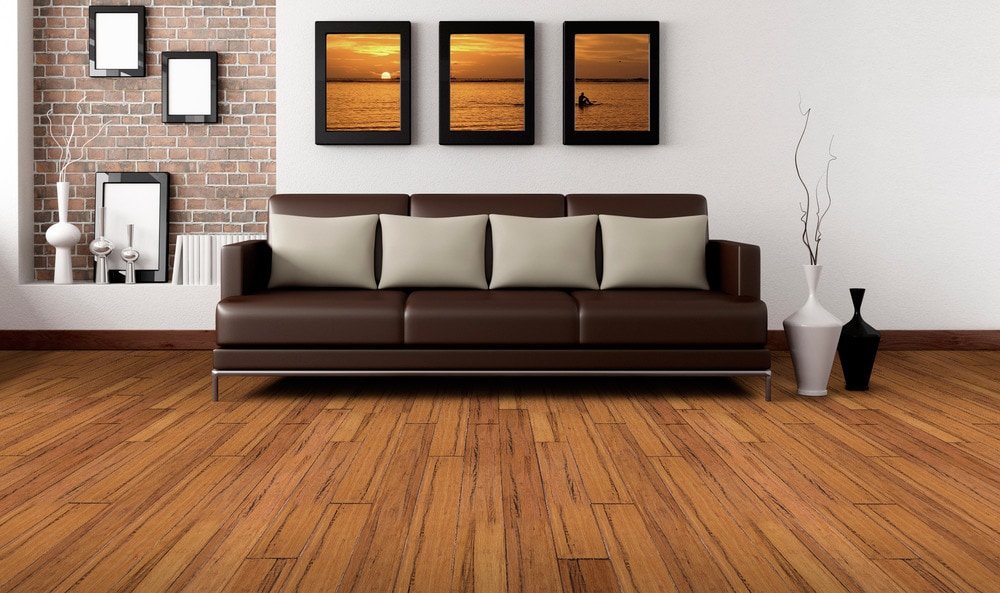
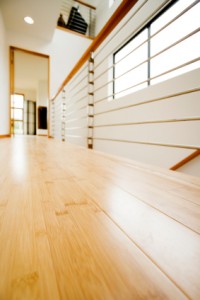
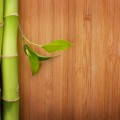
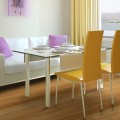
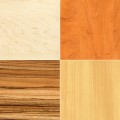

Dana Ruppert
My husband and I are building and will be making a scene between engineered flooring and bamboo flooring? We have three dogs which is more pet friendly. Which is easier to maintain?
Gary
Would there be a problem installing bamboo over radiant heated floors?
pio consoli
can bamboo be resanded after a while like any other wood?
susan corbett
Is bamboo considered to be reengineered? Can it be used on a concrete slab?
Jan Exby
What recourse do we have if a family member appears to be having a significant respiratory reaction to the MOSO high quality bamboo flooring that was recently installed? Are there any remedial steps we can take?
ADARSH KUMAR A.P
WHAT IS THE COST OF BAMBOO FLOORING ?
Sharon Thistlethwaite
I have been leaning towards strand woven bamboo. I have some concerns. The emissions of gases. We are installing it ourselves. We have 3 dogs and 2 cats and the cats sometimes spray and one of the dogs has an occasional accident . Would Hickory or White Oak be better? We are also doing the flooring ourselves.
Thanks
Sharon